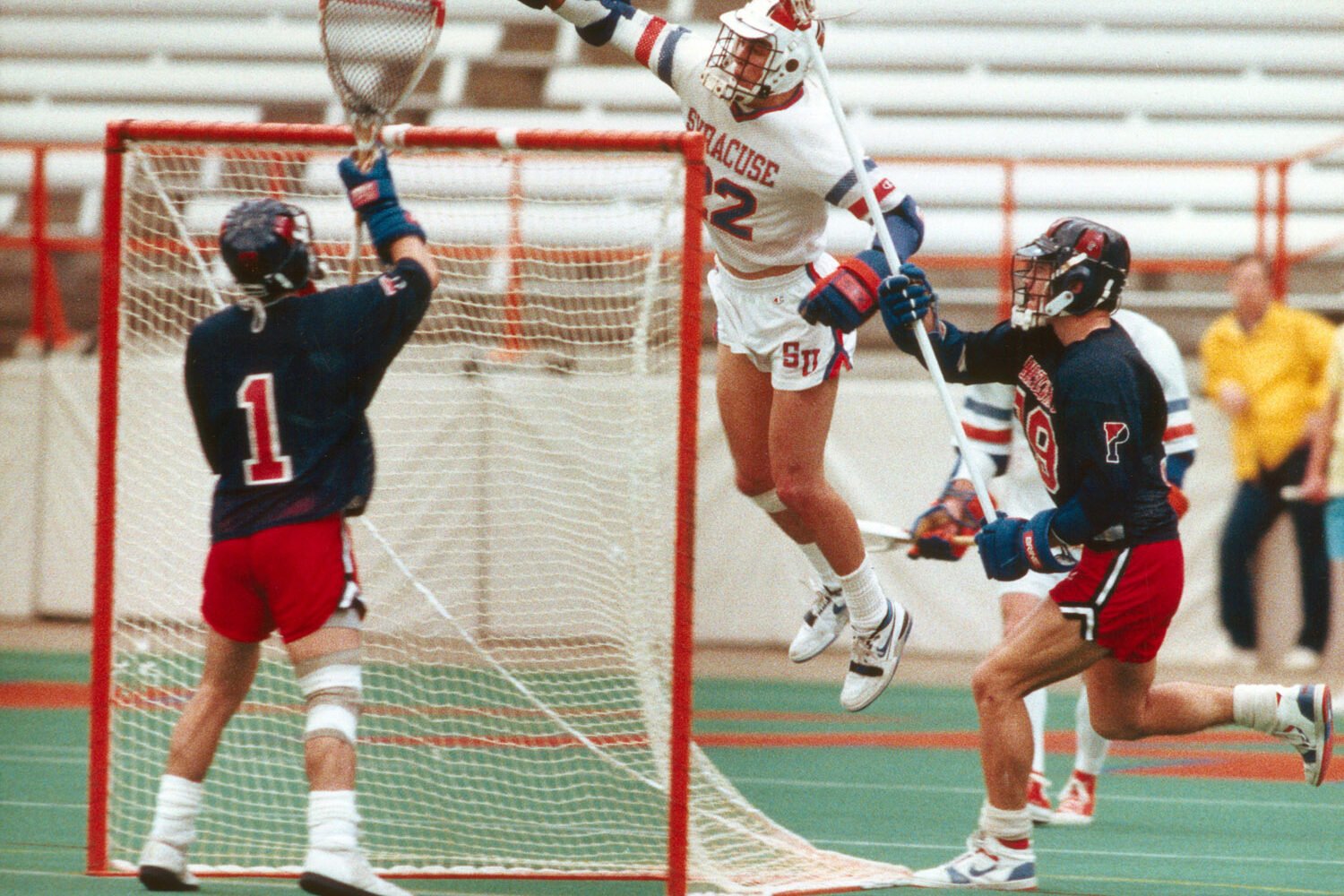If a married couple in their thirties lives with roommates, one might assume that something is wrong: financial precarity, odd immaturity, unusual caregiving responsibilities. But Rhaina Cohen, a producer and editor at NPR, lives with her husband, their two friends, and those friends’ young children because she’s chosen to place friendship at the center of her life. In their olive-green rowhouse in Dupont Circle, the walls are adorned with a hodgepodge of both couples’ art, and two high chairs abut the dining-room table. These are not four co-parents—they’re two separate families. But they’re also sharing a life.
Cohen’s commitment to friendship is reflected in her new book, The Other Significant Others, which profiles a handful of people whose go-to person is not a spouse but a friend. In the past century, the book suggests, our society has diminished the importance of friendship in favor of romantic relationships, making our connections to friends less rich and intimate than they once were. To Cohen, this is a substantial loss—harmful to ourselves, our friends, and our romantic partners. She hopes her book will turn our attention to a neglected kind of relationship, expanding our notion of what a friend can be.
You decided to write this book because of an intense friendship you experienced in your twenties. Tell me about it.
We met at this place called Lost & Found—it’s a bar near the convention center—and that night as we were Metroing home, we realized that we lived a five-minute walk from each other in Petworth. We just took to each other immediately—it felt like I had fallen in love with her in a way that was not dissimilar to my husband. We didn’t have sexual attraction, but we had a desire to know everything about each other. We were so enthusiastic and so open about our enthusiasm for each other, and it didn’t fit into a category of emotion that made sense to me. Those early couple of years got us to this place that felt like a platonic partnership or romantic friendship, and that opened up a whole bunch of questions that eventually turned into what the book is now.
You use those terms, “romantic friendship” and “platonic partner-ship,” frequently in the book. What do they mean?
“Romantic friendship” is a term that historians use for a kind of relationship that was common in centuries past, which were really affectionate same-sex relationships. There’s an asterisk about how many of those actually had some kind of sex involved, since you didn’t have widespread concepts of queerness, but I think a lot of these operated in this kind of in-between zone of having elements of infatuation while also being friendships.
And then for platonic partnerships, I’m talking about friendships that rise to the level of being partnerships. I think of that as being about commitment, making decisions together, and looking toward a joint future. These are people who are buying homes together, raising kids together, taking care of each other in old age—they’re their go-to person.
Your book suggests that, historically, these kinds of friendships were more common and acceptable.
Centuries and millennia ago, friendship was this exalted relationship. There was an emotional intensity and affection that we now code as only being possible within romantic or sexual relationships. You have ancient thinkers saying that they could imagine no better aspect of life than friendship. It could be the central emotional relationship in your life rather than a peripheral one. Now we say people are “just friends.” So there’s this big gulf in how people have viewed this same kind of relationship across time.
What changed?
The short answer, I think, is that marriage has ballooned in its importance and has crowded out space for other kinds of relationships that matter. And then, by the time you get the introduction of the idea of homosexuality and all the stigma attached to it, friendship—particularly same-sex friendship—became suspect. You even see books that depicted really close friendships between young women being republished without those scenes in them.
So I think that both homophobia and the growth in our expectations of marriage have impoverished friendship and led us to this place where you’re not even supposed to work on a friendship. It’s supposed to be easy. Only a relationship that doesn’t matter is one that you wouldn’t work on. If a relationship has any kind of power and meaning and sustained presence in your life, it’s going to involve some trickiness.
Lately, there’s a lot of conversation about how to make marriage healthier. You argue that having more friendships can take pressure off of a marriage by distributing the emotional load.
I was a little surprised by how many people were interested in that particular angle of “you can enrich your romantic relationships by leaning more on friends.” It’s true, but it’s not the most important thing that I’m arguing, since it still centers romantic relationships. But I do think there’s a growing understanding that the all-encompassing expectations of monogamous romantic relationships kind of have the math backwards.
Right, we seem to expect that our spouse will fulfill every emotional and logistical need.
The default is that you find a spouse and that spouse will be everything. But it’s odd to expect that one person is going to be the right person for every role, every form of support. If we were freed a little bit to say, okay, there are these packages of roles—co-parent, roommate, confidant, etc.—and one person is not going to be good at everything, people might find that they’re better able to match the role to the person, rather than having a kind of broad-brush approach. But I think a lot of people are not even asking themselves these questions, because it’s considered a strike against the quality of the marriage if you aren’t always turning to one person. If we unbundled some of these roles, then people might find that they’re more creative in how they’re constructing their lives.
Men in particular are struggling with friendship. Why?
I don’t think men in the US are given a lot of the skills or encouragement that you need to have close friendships, but all you have to do is look at history—or just men in other countries—to realize that it’s not intrinsic to maleness. [American] boys are not taught to be intimate with one another. They’re told that what it takes to be a man is to be independent, and that the one relationship that you can turn to for emotional intimacy is with a woman. Even if they think it’s working for their romantic partner to be the person they turn to for everything, it’s not a good safety net for the rest of their lives.
There’s also a loneliness aspect.
Lots of people now know these statistics about the high percentage of Americans who have no close friends or no friends at all. There are concerns about a loneliness epidemic—the surgeon general is talking about platonic relationships being important. People have an absence of community and they’re looking to marriage for that, but it’s really an impossible ask. So I think that for a lot of people, maybe the most valuable thing is just to realize that there’s a whole continuum of what friendship can be—maybe platonic partners are at the far end, but there are other possibilities that we haven’t even entertained. We’ve been leaving this type of relationship on the table, and it has the capacity to be the most important relationship in our lives.
In your book, you write about a man who has started asking himself what the fullest version of each of his friendships looks like. Pragmatically, what does that mean?
The fullest version of a friendship is not necessarily that you become platonic partners with everybody. It’s “Given what our lives look like and where we connect, how do we find a richer form of our friendship than our inertia has landed us in?” I’m thinking about a friend in my life who brings out a playful side of me, and I think a fuller version of our friendship is one where we are going on more vacations together—or once we had a sleepover with her and her partner, which was very fun. But the fullest form of a friendship could be, like, the house that I’m living in right now with my friends. We are really compatible as housemates, and we get to be in each other’s day-to-day lives, and also for the extraordinary moments. To do that means considering friends to be people that you’re willing to build your life around, as opposed to squeezing them into your existing life.
You and your husband have been living with your friends and their children for almost three years now. What are the rewards of that?
There are many. Most Fridays, we host Shabbat as a house. That is the thing that makes it feel like a home and not just that we happen to be sharing space together. I think the benefits with the kids are pretty clear: You have a connection with a kid who cares for you, and that’s a special, beautiful thing. At the bris for their second child, my husband held the newborn and I was the person to announce the name to the community. I feel like I am bound to our friends and their kids in a way that would be impossible to imagine if we didn’t live together.
And there are tangible benefits for our friends. If they want to go out for an evening and my husband or I happen to be home, they don’t have to get childcare. My husband told a colleague about our living arrangement, and he was like, “So your housemates can go on a walk without having to plan it or get a babysitter?” I mean, it was just wild to him that there’s at least some allowance for spontaneity or for things to go wrong and know that there is some kind of backstop.
As a society, how do you think we can restore friendship to a place that’s as rich and expansive as it used to be?
Well, I’d like to banish the phrase “just friends,” because what could be more than friendship? But I think, in general, if people were operating from a place of curiosity about, like, Who are the most important people in your life? What connections are you struggling with right now? Who is making you feel most alive? If we were asking more open-ended questions about our social relationships, it would help a lot. We are inclined to structure our lives around our careers and our familial and romantic relationships. But I think we should be taking friendship seriously as a relationship that we’re willing to make time and sacrifices for.
This article appears in the May 2024 issue of Washingtonian.


















